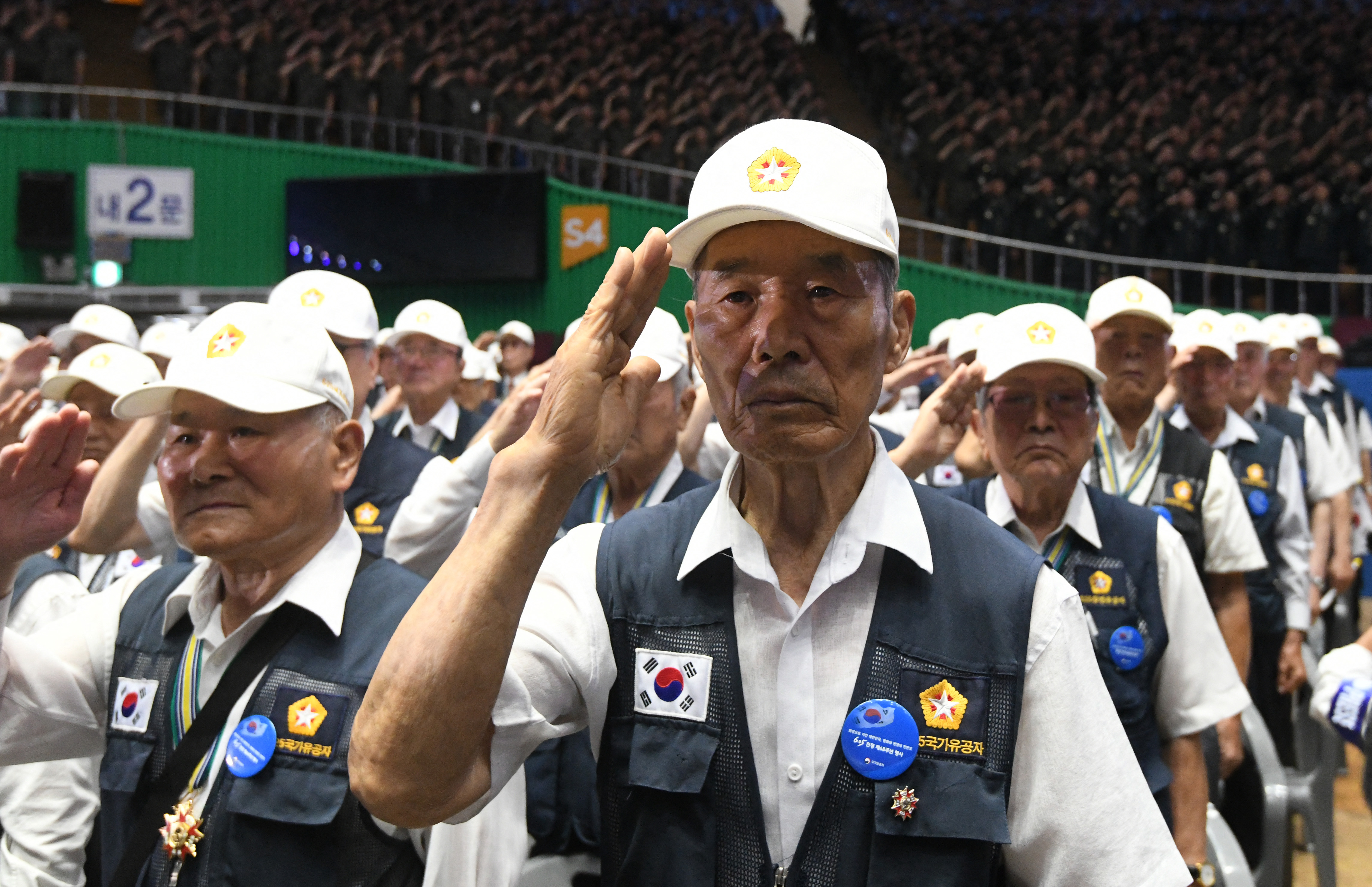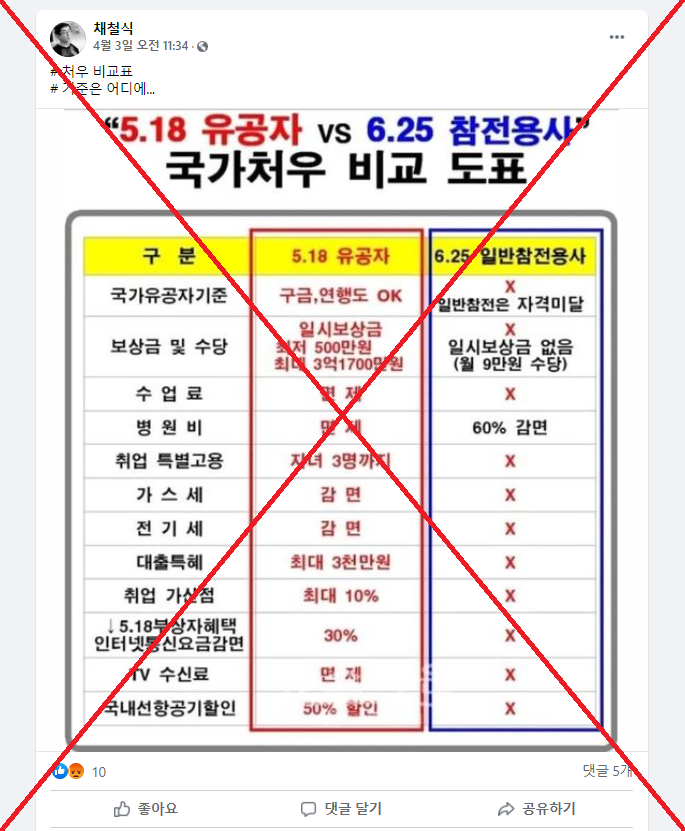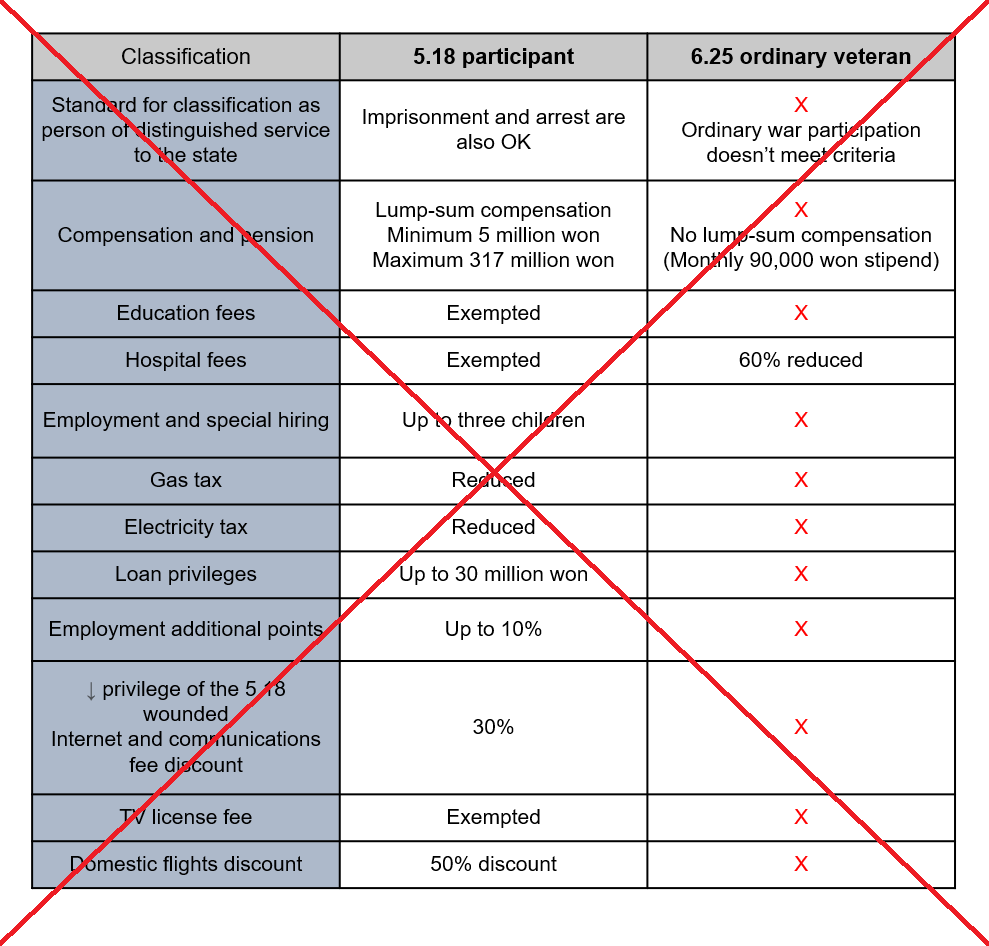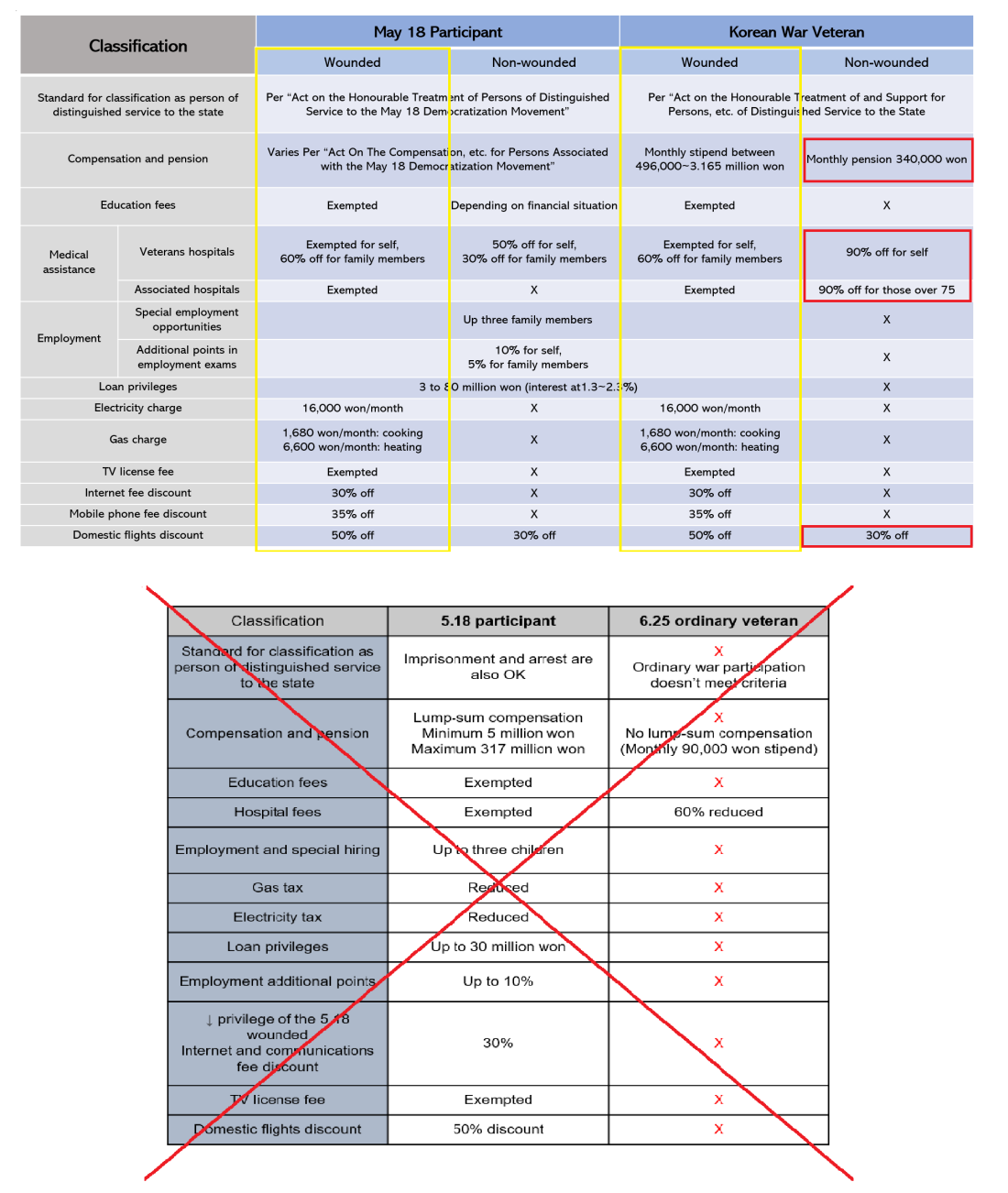
Facebook posts mislead on benefits for South Korean war veterans
- This article is more than four years old.
- Published on April 20, 2021 at 07:00
- 3 min read
- By AFP South Korea, SHIM Kyu-Seok
The claim was shared here on Facebook on April 3, 2021.
“Treatment comparison chart, where is the standard…,” reads the Korean-language post shared alongside the chart.

The chart's title reads: “‘5.18 distinguished person vs 6.25 ordinary veteran,’ a comparison chart of national treatment.”
"5.18" refers to the May 18 Democratization Movement of 1980, when demonstrators in the South Korean city of Gwangju protested against martial law imposed by the military junta. A military crackdown by the dictatorship ensued, leaving hundreds dead, as stated in this AFP report.
"6.25" is an abbreviation frequently used in South Korea to refer to the 1950-53 Korean War, based on the date it began, June 25, 1950.
An English translation of the chart by AFP can be seen below:

The chart purports to show that non-wounded Korean War veterans receive fewer benefits than May 18 participants.
It also claims non-wounded Korean War veterans are not classified as “persons of distinguished service", but a May 18 participant would qualify for this title even if they had been imprisoned or arrested during the 1980 crackdown.
Identical charts have been shared on Facebook here and here. A variant of the chart with identical content has been shared here and here.
The chart, however, is misleading.
Veteran status
All Korean War veterans are classified as “persons of distinguished service to the state,” according to Article 4 of South Korea’s “Act on the Honorable Treatment of and Support for Persons, etc. of Distinguished Service to the State.”
The law can be read in full here on South Korea’s official legislation website.
An English translation of the law, produced by the government-run Korea Legislation Research Institute, can be read here.
While the Korean-language terms used in the law to specify wounded and non-wounded veterans are different, the term “ordinary war veterans” has also been used by Korean government bodies to refer to non-wounded veterans.
It is used here in a press release from the Anti-Corruption & Civil Rights Commission that was issued on September 9, 2019.
Benefits comparison
An analysis of official figures provided by South Korea’s Ministry of Patriots and Veterans Affairs (MPVA) found that wounded Korean War veterans receive comparable benefits to wounded May 18 participants.
In response to AFP’s inquiry about the chart circulating on Facebook, the MPVA provided its own chart to show how it calculates compensation to members of the two groups.
AFP translated the MPVA chart into English and simplified it below.
Below is a comparison between the information from MPVA translated by AFP (top) and the information in the misleading post (bottom):

In the first table, the highlighted yellow columns show both wounded Korean War veterans and May 18 participants are covered for most government benefits on comparable terms.
However, the misleading chart wrongly compares specific benefits for wounded May 18 recipients with non-wounded Korean War veterans.
The misleading chart also contains incorrect figures for benefits awarded to non-wounded Korean War veterans.
Information highlighted by AFP in red indicates the actual benefits received by non-wounded Korean War veterans.
According to the MPVA table, uninjured Korean War veterans receive a pension of 340,000 won per month, not 90,000 won as was claimed. They also receive a subsidy of 90 percent on medical costs, not 60 percent as was claimed. They are also eligible to receive a 30 percent discount on domestic flights, which the misleading chart does not include.
The MPVA lists benefits available to Korean War veterans and May 18 recipients on its website here and here, respectively. War veterans who were wounded, as well as the families of the fallen, are eligible for a different set of benefits that are listed here.
Copyright © AFP 2017-2026. Any commercial use of this content requires a subscription. Click here to find out more.
Is there content that you would like AFP to fact-check? Get in touch.
Contact us
